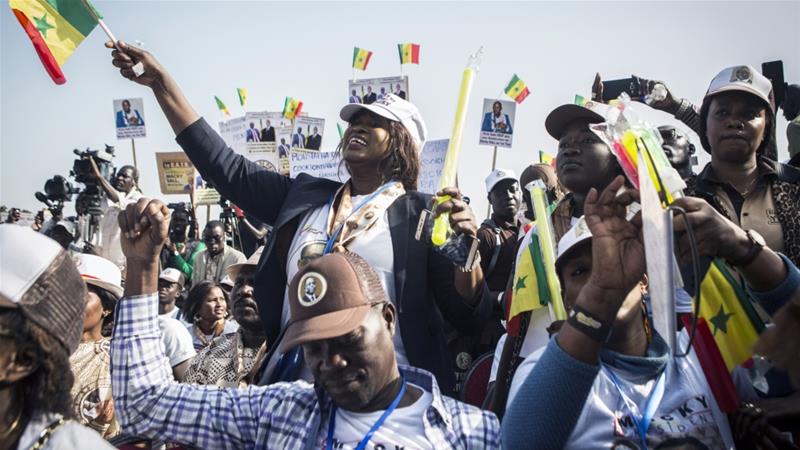
The Senegalese voters are waiting with bated breath the results of the hotly contested presidential elections. While official results are yet to be announced, supporters of the rival candidates are publishing their own results online.
President Macky Sall’s camp claimed he won re-election with over 50 per cent of the vote. Mohammed Dionne, spokesman for Sall’s Alliance for the Republic (APR) party said preliminary results suggested that the incumbent, Macky Sall, had secured about 57% of the vote in Sunday’s elections.
However, the opposition parties disputed Dionne’s statement claiming that the preliminary election results showed a run-off was unavoidable.
“The results compiled so far allow us to say this: We will not allow the outgoing president to suppress the will of the people,” opposition leaders Idrissa Seck and Ousman Sonko said at a joint press conference in Dakar.
The official results are expected to be announced Friday, with a run-off between the two front runners on March 24 if no single candidate secures a majority.
Macky Sall is the bookies favourite to win Sunday’s presidential election. Sall is seeking a second term to complete his ambitious development and reform programme aimed at transforming Senegal into an emerging economy by 2035. The plan includes an array of big ticket infrastructure projects, including a rail project, power generation and a futuristic new city on the outskirts of Dakar.
The former protégé of Abdoulaye Wade has mastered the dark art of politics. Since defeating his former mentor in the 2012 election, Sall has shored up his political base by cracking down on dissent and political rivals. He has barred two of his main rivals, Khalifa Sall, the former mayor of Dakar, and Karim Wade, son of the former president, both jailed for graft, from contesting the presidential elections.
Heavy-handed crackdowns by security forces on some protests have also prompted accusations that President Sall has an authoritarian streak.
Sall started in politics as a member of Wade’s Senegalese Democratic Party (PDS) and served as his prime minister between 2004 and 2007. Internal disputes led Sall to split with Wade in 2008 and form his own party, Alliance for the Republic (APR).










Recent Comments